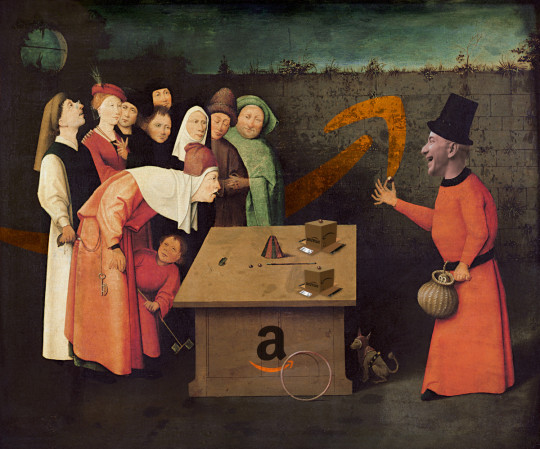#landmark court case
Text
Indira Devi vs. Veena Gupta: Right of Repurchase is Assignable
Case: Indira Devi (Appellant) versus Veena Gupta & Ors. (Respondents)
Court: The Supreme Court of India.
Jurisdiction: Supreme Court of India Civil Appellate Jurisdiction
Civil Appeal No. 9833 of 2014
Judgement Date: July 4 2023.
Bench: Honorable Justice Abhay S. Oka & Honorable Justice Rajesh Bindal
Concepts this case deals with –
Major:
Assignability of Right of Repurchase.
Transfer of Right in Immovable Property through Gift Deed.
Conditional Sale Deed.
Minor:
Who shall perform the considerations?
Interdependent contingent considerations.
Property Involved –
Property ‘A’
Persons Involved –
Mr. Kishori Lal Sahu: Exclusive Owner of Property ‘A’.
Smt. Veena Gupta: Daughter in Law of Kishori Lal Sahu. (Respondent)
Mr. Kaleshwar Prasad Singh: Tenant on Property ‘A’.
Smt. Indira Devi: Daughter of Kaleshwar Prasad Singh. (Appellant)
Documents Involved –
Conditional Sale Deed b/w Kishori Lal Sahu & Indira Devi concerning Property ‘A’.
Gift Deed by donor Kishori Lal Sahu to donee Veena Gupta, gifting number of properties including right/interest in Property ‘A’.
Suits & Appeals –
Original Suit: Trial Court 1983 - Civil Suit was Filed in 1983 by Veena Gupta & Kishori Lal Singh (at the time not deceased) for Special Performance as well as non-payment of rent against Indira Devi. (Suit Dismissed)
First Appeal: Lower Appellate Court 2000; Veena Gupta appeals against the dismissal of the suit. (Appeal is Dismissed)
Second Appeal: High Court Patna (Bihar): Second Appeal No. 123 of 2000; Veena Gupta appeals against the dismissal by lower appellate court. (Appeal admitted and adjudged on)
Supreme Court: Civil Appeal No. 9833 of 2014; Indira Devi appeals against the order of High Court. (Appeal is dismissed)

Facts of the Case –
Kishori Lal Sahu is the owner of property ‘A’ and Kaleshwar Prasad Singh is a tenant on the said property.
On 5th August 1977 Kishori Lal Singh the Owner & His Son due to dire need of funds executed a conditional sale deed in favour of Indira Devi (Vendee) d/o Kaleshwar the tenant. The condition was that the Vendee would pay Rs. 5000 as consideration to the Vendor, and if this Rs. 5000 is not returned by the Vendor by July 1984, the Vendee will become the owner of the property, and if the money is paid back, the Vendee will have to execute a sale deed of the property in favour of the Vendor that is to return the property.
On 14th February 1983 Kishori Lal executed a registered gift deed whereby he gifted number of properties to Veena Gupta (Respondent No. 1) the Daughter in Law of Kishori Lal and Wife of Gopal Prasad. The number of properties gifted contained the property in question where it was mentioned that the said property was transferred to Indira Devi, which can be retrieved by fulfilling conditions, that is to pay Rs. 5000 by July 1984. The Gift Deed was executed in 1983.
The Vendors that is Kishori Lal was ready to pay Rs. 5000, but the Vendees didn't agree and a civil suit was filed in 1983 in a Trial Court.
Plea by Respondent (Plaintiff in that suit) in Trial Court 1983: Special Performance Decree requiring Indira Devi/Kaleshwar (Defendant there) to accept Rs. 5000 and return the property, and if there is no performance, a decree directing appellant to register the sale deed in favour of Veena Gupta (Kishori Lal 2nd Plaintiff) with possession.
Representations in the Supreme Court:
Appellants (Indira Devi):
Kishori Lal executed the conditional deed in favour of Indira. And thus the right of repurchasing the property lies with Kishori Lal as the said right is personal. Stating he had no right to assign the right to third party.
Gift Deed executed is not valid as it contains consideration to be paid for obtaining the said property.
Judgements in the following cases: Bhoju Mandal v. Debnath Bhagat, Kapilaben vs. Ashok Kumar Jayantilal Sheth; were cited for supporting the case.
Respondents (Veena Gupta):
In the Gift Deed it is specifically mentioned that how donee may obtain the property by performing the promise of the contract/deed. 'She will have all the rights which Kishori Lal had'.
When as per the contract the vendor (Kishori Lal, non-deceased at the time of original suit of 1983 / Veena Gupta) was to give Rs. 5000 for repurchase, the vendor was willing to give but the consideration was not accepted by Indira Devi, thus to complete their part of promise Vendor deposited Rs. 5000 with Court of Original Suit with its permission.
The condition precedent for the repurchase was thus completed, and Kishori Lal assigned the right to repurchase to Veena Gupta through Gift deed.
To counter that the right of repurchase was personal, following judgements were cited for support: T.M. Balakrishna Mudaliar vs. M. Satyanarayana Rao, Shyam Singh vs Daryao Singh. It was contested that the right was assignable and not personal. And even if the Court would deal with the issue sensitively, the party assigned to was not any third party rather it was a party from the family of Kishori Lal himself.
Law & Analysis
Following are the Issues to be answered by us on the basis of facts of the case, representations made, and previous judgements:
Is the Gift deed valid?
Is the right of repurchase assignable or personal?
1. Will first begin with the validity of Gift Deed:
Gift is defined under Section 122 of Transfer of Property Act, 1882 as: Gift is the transfer of certain existing moveable or immoveable property made voluntarily and *without consideration*, by one person, called the donor, to another, called the donee, and accepted by or on behalf of the donee.
Under the Transfer of Property Act Immovable Property is defined to mean anything except standing timber, growing crops or grass. Further interpretation of other definitions of other acts include Land, Things attached to earth and benefits , Benefits to arise from land. If further studied a Right if related to movable or immovable properties then a Right related to Immovable Property becomes a immovable property. Even if we consider it a movable property it can still be gifted through a gift deed.
Thus it is agreeable that in this case in the gift deed the Property 'Physical' in Question is not gifted, rather the right to repurchase to same is transferred. The consideration comes in question when dealing with the physical actual property in question. The donee didn't have to pay any consideration for the right which was transferred.
2. Is the right to repurchase personal or can be assigned?
To begin with, we must look into the contract itself that is its clauses, content and intention of the parties which may be based of the language of the contract or the circumstances preceding or at the time when the contract was executed.
- In our case on the basis of the part of the sale deed presented before the High Court the deed didn't specifically contain any clauses prohibiting the assignment of the right of repurchase.
- At first, although it is not strictly related to our case, but we must look at Section 40 of the Indian Contracts Act to ascertain whether a promise or performance is personal: 'If it appears from the nature of the case that it was the intention of the parties to any contract that any promise contained in it should be performed by the promisor himself, such promise must be performed by the promisor. In other cases, the promisor or his representatives may employ a competent person to perform it.' Thus if a promise is of a nature that only the promisor has the ability to perform or skills then it can be performed only by the promisor.
Assignability of Contractual Rights or Obligations:
Under Indian Law any type of contract can be assigned except those specifically prohibiting the same or which are of personal nature. In the case of Kapilaben v. Ashok Kumar Jayantilal Sheth the Supreme Court observed that when entire promise or perfomance of one party towards the other are transferred to third party, then the consent of the promisee is required but when assigning just the rights or obligations to another doesn't require consent except when it is not of personal nature or if it is not specifically prohibited.
To stress on this point we will look at some of the cases cited by the counsels of the present case:
1. T.M. Balakrishna Mudaliar vs. M. Satyanarayana Rao –
The Court refered to the judgement in the case of Sakalaguna Nayadu v. Chinna Munuswami Naykar where in the Privy Council held that if the contract of repurchase did not specifically say that such benefit was only for the parties contracting, then the contract can be assigned and would be enforceable by law.
2. Shyam Singh vs Daryao Singh –
The facts of the stated case were somewhat similar to those of the present case. Lower courts opined that if there is no clause in the sale deed permitting assignment, then prohibition of the same can be read into the contract. When the matter came to Supreme Court the issue at point was considered whether such a prohibition can be read into the document by implication. The court by citing Section 15(b) of the Specific Relief Act, 1963 held that in absence of words indicating prohibition in the contract, then such prohibition cannot be read into the terms of documents.
Section 15 (b) of Specific Relief Act, 1963 stipulates that specific performance of a contract may be obtained by the representative in interest or the principal thereto: Except if it is of personal nature.
The Court was fortified with the view stated in the above cases by the Justices.
3. Bhoju Mandal v. Debnath Bhagat –
The Court considered this case, but the case primarily was concerned with the question whether document was mortgage or sale deed with condition of repurchase.
4. Kapilaben v. Ashok Kumar Jayantilal Sheth –
In this case issue was transfer/assignment of contract was without the consent of the promisee. The Court referred to judgement in Khardah Co. Ltd v. Raymon & Co. wherein the Court held that there was a well-recognized distinction between two classes of assignments which are assignment of rights in a contract and assignment of obligations in a contract. While the total assignment of contract that is substituting a party by a new party with consent/agreement of both original parties is called novation, where on novation there is no link between the old party and the new/amended contract, in such a case as said consent is required.
But when considering assignment of just the rights under a contract consent of the promisee is not strictly required that is the rights are freely assignable unless the contract prohibits it.
The Court in the present case also referred to a commentary on The Indian Contract Act & Special Relief Act by authors Pollock and Mulla, wherein the authors opine that the benefits of contract can be assigned where it makes no difference to the person on whom the obligation lies to which of two person (original or asignee) he is to discharge it. That is where the identity of the party on which the obligation is to be discharged makes no difference to the promisee (one who has obligations), provided the original promisor has effected such assignment willingly, then such contract is prima facie assignable, except in case of personal consideration. Of course payment of money does not involve personal consideration/skills.
Thus, the Court in this present case held that the right was not personal rather freely assignable in absence of bar in contract.
Conclusion:
We can conclude simply that:
1. Non-assignability cannot be implied into contract if it doesn't specifically mention it.
2. Rights under a contract when not of a personal nature can be assigned freely without consent, except barred.
3. Gift of a interest in immovable property irrespective of consideration involved in further exercise of the right is valid as there is no apparent consideration for the right itself.
Thankyou for reading! Connect with me on LinkedIn Soham Sane.
#supreme court#case comment#Indian Contracts Act#Right to Repurchase Property#Transfer of Property Act#Landmark Judgement
1 note
·
View note
Text
Decoding Section 147: Mangalam Publications Verdict and the Essence of Tax Disclosures
In the intricate legal battle between M/S Mangalam Publications and the Commissioner of Income Tax, Section 147 of the Income Tax Act, 1961, takes centre stage. The case, marked as Civil Appeal Nos. 8580–8582 of 2011, reached its zenith on January 23, 2024, with Hon’ble Mr. Justice B.V. Nagarathna and Hon’ble Mr. Justice Ujjal Bhuyan delivering landmark verdicts.
Mangalam Publications Verdict and…

View On WordPress
#appellate tribunal#disclosure obligations#financial assessments#future legal interpretations#Income Tax Act#Kerala High Court#landmark ruling#legal case#Legal Verdict#Mangalam Publications#Section 147#tax implications#tax law#Techmin Consulting
0 notes
Text
An unprecedented number of countries and international organizations are expected to participate in the International Court of Justice’s (ICJ) oral hearings on Israel’s occupation beginning February 19, 2024, Human Rights Watch said today. Fifty-two countries and three international organizations will participate in the oral proceedings, more than in any other case since the world’s highest court began functioning in 1946.
The broad participation in the hearings and the many written submissions reflect growing global momentum to address the decades-long failure to ensure respect for international law in the Occupied Palestinian Territory.
“The International Court of Justice is set for the first time to broadly consider the legal consequences of Israel’s nearly six-decades-long occupation and mistreatment of the Palestinian people,” said Clive Baldwin, senior legal adviser at Human Rights Watch. “Governments that are presenting their arguments to the court should seize these landmark hearings to highlight the grave abuses Israeli authorities are committing against Palestinians, including the crimes against humanity of apartheid and persecution.”
#yemen#jerusalem#tel aviv#current events#palestine#free palestine#gaza#free gaza#news on gaza#palestine news#news update#war news#war on gaza#icj#icj hearing#south africa#apartheid#end the occupation
5K notes
·
View notes
Text
//In a landmark decision, the Supreme Court of Japan] on Tuesday said it was unlawful to restrict the use of bathrooms by a transgender woman at the economy ministry, overturning a lower court ruling. It is the first top court decision over bathroom usage by sexual minorities.
The ruling — a unanimous decision by the five judges on the bench — marks a significant step forward for the working conditions of transgender people, and could affect how companies and government ministries handle similar cases in the future.//
In Japan, transgender people can only legally change their gender if they have had gender reassignment surgery. The woman in this court case was apparently unable to do so due to health reasons.
Via Japan Times.

Photo from a March 8 demonstration in Tokyo. REUTERS/Issei Kato.
6K notes
·
View notes
Text
"Palestinian plaintiffs and their legal representatives on Friday [January 26, 2024] presented a powerful case in federal court accusing President Joe Biden and other top US officials of complicity in Israel's genocide in Gaza.
People around the world tuned in for the long-awaited hearing in Oakland, with plaintiffs appearing in person and over Zoom in an unprecedented effort to hold the Biden administration accountable for its actions in Gaza.
The Center for Constitutional Rights (CCR) filed the lawsuit in November 2023 on behalf of Defense for Children International–Palestine, Al-Haq, and eight Palestinians in the US and Palestine. The complaint accuses President Joe Biden, Secretary of State Antony Blinken, and Secretary of Defense Lloyd Austin of failing to live up to their legal responsibilities under the 1948 Genocide Convention and the 1988 Genocide Convention Implementation Act.
The United Nations convention classifies complicity in genocide, or the intentional destruction of a people in whole or in part, as a crime under international law and requires that states take measures to prevent such atrocities.
[Note: This is a big reason why politicians almost never call it a genocide, btw. Because if a country recognizes that it's a genocide, then they actually are legally required to do a bunch of things to stop it, under international law.]
The historic lawsuit contends that the Biden administration has failed to uphold its obligations by continuing to provide diplomatic and military support for Israel's brutal campaign in Gaza. Plaintiffs are asking the court to stop Biden from sending more weapons and munitions to Israel that are being used to kill Palestinians en masse.
The hearing before the US District Court for the Northern District of California took place just hours after the International Court of Justice issued provisional measures against Israel in a landmark case brought by South Africa.
-via TAG24, January 26, 2024. Article continues below.
Court contends with questions of jurisdiction and responsibility
In evaluating the allegations, questioning in Friday's hearing revolved around the so-called political question doctrine, by which federal courts regularly refrain from ruling on political matters seen as best resolved by the president and Congress.
The Department of Justice argued that according to the doctrine, the court has no jurisdiction to rule in the case.
"If the court condemns United States foreign policy toward Israel, it could cause international embarrassment and undermine foreign policy decisions in the sensitive context of the Israeli-Palestinian conflict," defense counsel Jean Lin told Senior District Judge Jeffrey S. White.
Katherine Gallagher of the CCR countered that the court does, indeed, have a responsibility to step in: "Here, the question is a legal one, whether the actions undertaken by the United States failed to uphold the obligation to prevent genocide, and that is an active obligation that requires that the United States not provide the means by which a genocide is being furthered."
"There is no discretion for any state to evade its obligations, its legal obligations. These are not policy decisions," she said.
Palestinian plaintiffs share powerful testimonies before the court
After legal arguments in the case, Judge White heard two hours of gut-wrenching testimony from Palestinian plaintiffs and a renowned Holocaust and genocide expert.
Rubin Presidential Chair of Jewish History at Wake Forest University Dr. Barry Trachtenberg shared his remarks before the court in spite of vehement US government opposition.
"To have an event fall under the 1948 Convention on Genocide requires both action and intent, and here we see that very, very clearly in a way that seems really quite unique in history," he stated, noting that there is now an opportunity to stop Israel's unfolding genocide in real time to prevent further loss of lives...
Judge White said he would take the testimonies to heart as he evaluates his constitutional responsibilities, describing the case as "the most difficult judicial decision" he has ever had to make."
-via TAG24, January 26, 2024
-
Note: I know a lot of people are really not gonna appreciate that last line. I'm not thrilled with it either. But it is worth noting that having a federal court overrule the US president's huge foreign policy and military decisions would be an absolutely massive deal/precedent
This is a case that deserves to be ruled on with an incredible amount of seriousness, if only because if you're a federal judge who's going to make that call, your written decision/legal justification needs to be unimpeachable
That said, if the judge uses jurisdiction to pass the buck here and avoid his legal and human responsibility to do what he can to stop a genocide, I'm gonna be pissed
#palestine#cw war#free palestine#united states#us politics#oakland#california#legal system#foreign policy#war crimes#cw genocide#anti zionisim#isreal#current events#good news#hope#also this decision runs right up against the fact that#if US citizens can sue the US for war crimes/violating international law#and actually force change#then suddenly the gates will open to similar lawsuits for EVERY future war#which btw they SHOULD and international humanitarian law SHOULD be enforceablle#and it will also be a major step forward for something the US is trying really really hard to stave off#which is being investigated/sued by the International Criminal Court for war crimes during the Afghanistan and Iraq wars#or you know be held accountable for those war crimes in any way#which again I AM ALL FOR#genuinely how do you stop rich white countries from committing war crimes without an actual way to hold them accountable#and actually enforce international law#reminder that all posts related to the war are tagged palestine and cw war
2K notes
·
View notes
Text
With the landmark ruling — which falls in line with many of the SCOTUS justices' conservative stances — a precedent has now been set that in certain instances, U.S. businesses can legally deny their services to LGBTQ+ people under the First Amendment.
A final fuck you to the LGBTQ community at the end of Pride Month, courtesy of the Supreme Court.
#scotus#LGBTQ#politics#us politics#usa politics#lgbtqia#queer#news#supreme court of the united states
3K notes
·
View notes
Text

The 1947 "doll test" was a experiment conducted by psychologists Kenneth and Mamie Clark, which played a significant role in the legal battle against segregation in the United States. The study aimed to investigate the psychological effects of segregation on African American children.
In the experiment, African American children aged between three and seven were shown two dolls. These dolls were identical except for their skin colour - one doll had white skin while the other had brown skin. The children were then asked a series of questions, including which doll they preferred, which one was the "nice" doll, and which one looked most like them.
The results of the study were startling and disturbing. The majority of the children, regardless of their own race, consistently showed a preference for the white doll over the brown one. Many attributed positive qualities to the white doll and negative qualities to the brown one. The doll test demonstrated that segregation not only deprived African American children of equal educational opportunities but also harmed their self-esteem and sense of identity.
The findings of the doll test provided evidence of the damaging psychological impact of segregation and racism on African American children. These results were instrumental in the landmark Supreme Court case Brown v. Board of Education (1954), which ruled that racial segregation in public schools was unconstitutional.
417 notes
·
View notes
Text
Amazon’s financial shell game let it create an “impossible” monopoly

I'm on tour with my new, nationally bestselling novel The Bezzle! Catch me in TUCSON (Mar 9-10), then San Francisco (Mar 13), Anaheim, and more!

For the pro-monopoly crowd that absolutely dominated antitrust law from the Carter administration until 2020, Amazon presents a genuinely puzzling paradox: the company's monopoly power was never supposed to emerge, and if it did, it should have crumbled immediately.
Pro-monopoly economists embody Ely Devons's famous aphorism that "If economists wished to study the horse, they wouldn’t go and look at horses. They’d sit in their studies and say to themselves, ‘What would I do if I were a horse?’":
https://pluralistic.net/2022/10/27/economism/#what-would-i-do-if-i-were-a-horse
Rather than using the way the world actually works as their starting point for how to think about it, they build elaborate models out of abstract principles like "rational actors." The resulting mathematical models are so abstractly elegant that it's easy to forget that they're just imaginative exercises, disconnected from reality:
https://pluralistic.net/2023/04/03/all-models-are-wrong/#some-are-useful
These models predicted that it would be impossible for Amazon to attain monopoly power. Even if they became a monopoly – in the sense of dominating sales of various kinds of goods – the company still wouldn't get monopoly power.
For example, if Amazon tried to take over a category by selling goods below cost ("predatory pricing"), then rivals could just wait until the company got tired of losing money and put prices back up, and then those rivals could go back to competing. And if Amazon tried to keep the loss-leader going indefinitely by "cross-subsidizing" the losses with high-margin profits from some other part of its business, rivals could sell those high margin goods at a lower margin, which would lure away Amazon customers and cut the supply lines for the price war it was fighting with its discounted products.
That's what the model predicted, but it's not what happened in the real world. In the real world, Amazon was able use its access to the capital markets to embark on scorched-earth predatory pricing campaigns. When diapers.com refused to sell out to Amazon, the company casually committed $100m to selling diapers below cost. Diapers.com went bust, Amazon bought it for pennies on the dollar and shut it down:
https://www.theverge.com/2019/5/13/18563379/amazon-predatory-pricing-antitrust-law
Investors got the message: don't compete with Amazon. They can remain predatory longer than you can remain solvent.
Now, not everyone shared the antitrust establishment's confidence that Amazon couldn't create a durable monopoly with market power. In 2017, Lina Khan – then a third year law student – published "Amazon's Antitrust Paradox," a landmark paper arguing that Amazon had all the tools it needed to amass monopoly power:
https://www.yalelawjournal.org/note/amazons-antitrust-paradox
Today, Khan is chair of the FTC, and has brought a case against Amazon that builds on some of the theories from that paper. One outcome of that suit is an unprecedented look at Amazon's internal operations. But, as the Institute for Local Self-Reliance's Stacy Mitchell describes in a piece for The Atlantic, key pieces of information have been totally redacted in the court exhibits:
https://www.theatlantic.com/ideas/archive/2024/02/amazon-profits-antitrust-ftc/677580/
The most important missing datum: how much money Amazon makes from each of its lines of business. Amazon's own story is that it basically breaks even on its retail operation, and keeps the whole business afloat with profits from its AWS cloud computing division. This is an important narrative, because if it's true, then Amazon can't be forcing up retail prices, which is the crux of the FTC's case against the company.
Here's what we know for sure about Amazon's retail business. First: merchants can't live without Amazon. The majority of US households have Prime, and 90% of Prime households start their ecommerce searches on Amazon; if they find what they're looking for, they buy it and stop. Thus, merchants who don't sell on Amazon just don't sell. This is called "monopsony power" and it's a lot easier to maintain than monopoly power. For most manufacturers, a 10% overnight drop in sales is a catastrophe, so a retailer that commands even a 10% market-share can extract huge concessions from its suppliers. Amazon's share of most categories of goods is a lot higher than 10%!
What kind of monopsony power does Amazon wield? Well, for one thing, it is able to levy a huge tax on its sellers. Add up all the junk-fees Amazon charges its platform sellers and it comes out to 45-51%:
https://pluralistic.net/2023/04/25/greedflation/#commissar-bezos
Competitive businesses just don't have 45% margins! No one can afford to kick that much back to Amazon. What is a merchant to do? Sell on Amazon and you lose money on every sale. Don't sell on Amazon and you don't get any business.
The only answer: raise prices on Amazon. After all, Prime customers – the majority of Amazon's retail business – don't shop for competitive prices. If Amazon wants a 45% vig, you can raise your Amazon prices by a third and just about break even.
But Amazon is wise to that: they have a "most favored nation" rule that punishes suppliers who sell goods more cheaply in rival stores, or even on their own site. The punishments vary, from banishing your products to page ten million of search-results to simply kicking you off the platform. With publishers, Amazon reserves the right to lower the prices they set when listing their books, to match the lowest price on the web, and paying publishers less for each sale.
That means that suppliers who sell on Amazon (which is anyone who wants to stay in business) have to dramatically hike their prices on Amazon, and when they do, they also have to hike their prices everywhere else (no wonder Prime customers don't bother to search elsewhere for a better deal!).
Now, Amazon says this is all wrong. That 45-51% vig they claim from business customers is barely enough to break even. The company's profits – they insist – come from selling AWS cloud service. The retail operation is just a public service they provide to us with cross-subsidy from those fat AWS margins.
This is a hell of a claim. Last year, Amazon raked in $130 billion in seller fees. In other words: they booked more revenue from junk fees than Bank of America made through its whole operation. Amazon's junk fees add up to more than all of Meta's revenues:
https://s2.q4cdn.com/299287126/files/doc_financials/2023/q4/AMZN-Q4-2023-Earnings-Release.pdf
Amazon claims that none of this is profit – it's just covering their operating expenses. According to Amazon, its non-AWS units combined have a one percent profit margin.
Now, this is an eye-popping claim indeed. Amazon is a public company, which means that it has to make thorough quarterly and annual financial disclosures breaking down its profit and loss. You'd think that somewhere in those disclosures, we'd find some details.
You'd think so, but you'd be wrong. Amazon's disclosures do not break out profits and losses by segment. SEC rules actually require the company to make these per-segment disclosures:
https://scholarship.law.stjohns.edu/cgi/viewcontent.cgi?article=3524&context=lawreview#:~:text=If%20a%20company%20has%20more,income%20taxes%20and%20extraordinary%20items.
That rule was enacted in 1966, out of concern that companies could use cross-subsidies to fund predatory pricing and other anticompetitive practices. But over the years, the SEC just…stopped enforcing the rule. Companies have "near total managerial discretion" to lump business units together and group their profits and losses in bloated, undifferentiated balance-sheet items:
https://www.ucl.ac.uk/bartlett/public-purpose/publications/2021/dec/crouching-tiger-hidden-dragons
As Mitchell points you, it's not just Amazon that flouts this rule. We don't know how much money Google makes on Youtube, or how much Apple makes from the App Store (Apple told a federal judge that this number doesn't exist). Warren Buffett – with significant interest in hundreds of companies across dozens of markets – only breaks out seven segments of profit-and-loss for Berkshire Hathaway.
Recall that there is one category of data from the FTC's antitrust case against Amazon that has been completely redacted. One guess which category that is! Yup, the profit-and-loss for its retail operation and other lines of business.
These redactions are the judge's fault, but the real fault lies with the SEC. Amazon is a public company. In exchange for access to the capital markets, it owes the public certain disclosures, which are set out in the SEC's rulebook. The SEC lets Amazon – and other gigantic companies – get away with a degree of secrecy that should disqualify it from offering stock to the public. As Mitchell says, SEC chairman Gary Gensler should adopt "new rules that more concretely define what qualifies as a segment and remove the discretion given to executives."
Amazon is the poster-child for monopoly run amok. As Yanis Varoufakis writes in Technofeudalism, Amazon has actually become a post-capitalist enterprise. Amazon doesn't make profits (money derived from selling goods); it makes rents (money charged to people who are seeking to make a profit):
https://pluralistic.net/2023/09/28/cloudalists/#cloud-capital
Profits are the defining characteristic of a capitalist economy; rents are the defining characteristic of feudalism. Amazon looks like a bazaar where thousands of merchants offer goods for sale to the public, but look harder and you discover that all those stallholders are totally controlled by Amazon. Amazon decides what goods they can sell, how much they cost, and whether a customer ever sees them. And then Amazon takes $0.45-51 out of every dollar. Amazon's "marketplace" isn't like a flea market, it's more like the interconnected shops on Disneyland's Main Street, USA: the sign over the door might say "20th Century Music Company" or "Emporium," but they're all just one store, run by one company.
And because Amazon has so much control over its sellers, it is able to exercise power over its buyers. Amazon's search results push down the best deals on the platform and promote results from more expensive, lower-quality items whose sellers have paid a fortune for an "ad" (not really an ad, but rather the top spot in search listings):
https://pluralistic.net/2023/11/29/aethelred-the-unready/#not-one-penny-for-tribute
This is "Amazon's pricing paradox." Amazon can claim that it offers low-priced, high-quality goods on the platform, but it makes $38b/year pushing those good deals way, way down in its search results. The top result for your Amazon search averages 29% more expensive than the best deal Amazon offers. Buy something from those first four spots and you'll pay a 25% premium. On average, you need to pick the seventeenth item on the search results page to get the best deal:
https://scholarship.law.bu.edu/faculty_scholarship/3645/
For 40 years, pro-monopoly economists claimed that it would be impossible for Amazon to attain monopoly power over buyers and sellers. Today, Amazon exercises that power so thoroughly that its junk-fee revenues alone exceed the total revenues of Bank of America. Amazon's story – that these fees barely stretch to covering its costs – assumes a nearly inconceivable level of credulity in its audience. Regrettably – for the human race – there is a cohort of senior, highly respected economists who possess this degree of credulity and more.
Of course, there's an easy way to settle the argument: Amazon could just comply with SEC regs and break out its P&L for its e-commerce operation. I assure you, they're not hiding this data because they think you'll be pleasantly surprised when they do and they don't want to spoil the moment.

If you'd like an essay-formatted version of this post to read or share, here's a link to it on pluralistic.net, my surveillance-free, ad-free, tracker-free blog:
https://pluralistic.net/2024/03/01/managerial-discretion/#junk-fees

Image:
Doc Searls (modified)
https://www.flickr.com/photos/docsearls/4863121221/
CC BY 2.0
https://creativecommons.org/licenses/by/2.0/
#pluralistic#amazon#ilsr#institute for local self-reliance#amazon's antitrust paradox#antitrust#trustbusting#ftc#lina khan#aws#cross-subsidization#stacy mitchell#junk fees#most favored nation#sec#securities and exchange commission#segmenting#managerial discretion#ecommerce#technofeudalism
591 notes
·
View notes
Text

In a time when interracial marriage was considered a crime in Virginia, Richard and Mildred Loving — a white man and a woman of Black and Indigenous descent — decided to get married anyway.
Their fight to remain lawfully wedded became a landmark court case, which later changed American history when the Supreme Court ruled that it was unconstitutional for states to prohibit interracial marriage in 1967. But tragically, less than a decade after this historic win, Richard Loving died in a car crash in 1975. However, despite Mildred Loving's devastating personal loss, she remained deeply committed to the fight for human rights, and she even spoke out in support of same-sex marriage in 2007. "Not a day goes by that I don't think of Richard and our love, our right to marry, and how much it meant to me to have that freedom to marry the person precious to me," Loving said. "I believe all Americans, no matter their race, no matter their sex, no matter their sexual orientation, should have that same freedom to marry."
Source: African Archives
472 notes
·
View notes
Text
This woman was literally held captive by her family to prevent her from marrying a trans man. I'm so glad she's free now, but people seriously need to recognize how heterosexual trans people are not remotely protected by het privilege once they are known to be trans.
(&, as a note, this kind of thing also happens to trans men)
295 notes
·
View notes
Text
A historic legal agreement approved in federal district court yesterday afternoon commits the Environmental Protection Agency to a suite of proposed reforms to better protect endangered species from pesticides. The settlement, which covers more than 300 pesticide active ingredients, marks the culmination of the largest Endangered Species Act case ever filed against the EPA.
Under the agreement’s terms, the EPA will develop strategies to reduce the harm to endangered species from broad groups of pesticides, including herbicides and insecticides, while taking further steps to target meaningful, on-the-ground protections to endangered species most vulnerable to harm from pesticides.
Thanks @walking-on-a-scream for the submission!
#submission#endangered species#good news#hope#pesticides#herbicides#insecticides#environment#endangered species act#legal
487 notes
·
View notes
Text
“Today’s rulings against Switzerland sets a historic precedent that applies to all European countries,” Gerry Liston, a lawyer at Global Legal Action Network, which supported the Portugal case, said in a statement. “It means that all European countries must urgently revise their targets so that they are science-based and aligned to 1.5 degrees. This is a massive win for all generations.”
191 notes
·
View notes
Text

I found him trying to ransacked my house one day after I just finished a very energy-draining trial day on the court. He thought his built and athleticism would get him away as he planned to harm me in his way out with the contain of my safe box, but I was not in the mood to play around that day so I just focused my thought and then told him to stand still. Much to his horror, he stood still in the middle of my apartment unable to move a single muscle in his body. I took of my shoes and then walked my way to him, much to his fear as the severity of his condition eventually sunk in. As I told him to drain his mind and then went on to sleep, he soaked his pants wet in instance as I placed this idea of him getting his mind drained by shooting the biggest load of his life which is where all his brains content went away. He let out this long lustful moan as 22-25 years of his life sucked all the way down to his meat and then spilled out with the semen that now dribbled to my carpeted flooring, which he would clean after all of the process finished. Around 10 minutes later, he's an empty bottle ready to be filled with anything I wished so I decided to ascribed him a much needed role
That was 3 years ago, right before the pandemic. He's been my loyal in-house servant ever since and with the lockdown enforced, I was having a full rein over him without a single soul ever asked on his whereabouts. Nowadays, I bet none of his friends or families (if he ever had any) would come looking for him. I can see him being quite a difficult douchebag to live with, I bet his surroundings might be so elated that he's gone
As I conditioned him to become my servant, aside from the sexual favor he gave me everytime I wanted it from him, he would bring me my coffee everyday to bed and he would be up since early morning to ensure my breakfast is served when I'm awake.


When I left him to work, he would send this routine selfie every 3 hours telling me what he has finished and what he would do for the rest of his working time.
"Cleaning the guest bedroom," he would sent me a text that accompanied his manwhore of a picture

Or something like
"Done with the master bedroom, waiting for you to be home so I can sit on your weary lap like this and give it a good rub,"

And these messages always managed to spark something in my senses that just made me rock hard every single time.
Today I just won a rather landmark case that took quite too long in my opinion, so I'm up for a celebration. I can see myself buried deep within him when I gave him the hardest fuck to date, but maybe I should dial things up a bit. A resistant story as I momentarily let any trace of old him resurfaced and realized he's been living a nightmare? Or should I just go the plain way of throwing him around like a rag doll? Hmmmm......so many choices or schemes I could go through to be honest
478 notes
·
View notes
Text
Champion runner Caster Semenya won a potentially landmark legal decision for sports on Tuesday when the European Court of Human Rights decided she was discriminated against by rules in track and field that force her to medically reduce her natural hormone levels to compete in major competitions.
But the two-time Olympic champion’s success after her two failed appeals in sports’ highest court in 2019 and the Swiss supreme court in 2020 came with a major caveat. The ruling didn’t strike down the rules and the world track and field body said soon after it was released that the contentious testosterone regulations would “remain in place.”
445 notes
·
View notes
Text
It took more than a decade of litigation, but 21 Anishinaabe communities along the north shore of Lake Huron in Ontario will finally access a fair share of the wealth generated on their lands over the past 173 years.
The Robinson-Huron Treaty signed in 1850 promised its Indigenous beneficiaries annual payments in exchange for the right to use their lands.
A clause in the treaty explicitly tied the value of the annual payments to resource revenues.
Northeastern Ontario mining, lumber and fishing industries generated billions of dollars in profits over the past two centuries, but annual payments to First Nations were capped at 4 dollars per person in 1874 and haven't increased since.
In 2018, the Ontario Superior Court of Justice ruled that the Crown had a duty to increase annual payments to the beneficiaries of the Robinson-Huron Treaty. [...]
Continue Reading.
Tagging: @politicsofcanada
615 notes
·
View notes
Text

A copyright lawsuit filed by several major publishers puts the future of the Internet Archive's scan-and-lend library at risk. In a recent appeal, the non-profit organization argued that its solution is protected fair use and critical to preserving digital books. This position is shared by copyright scholars, the Authors Alliance, and other supporters now backing IA in court.
The Internet Archive (IA) is a non-profit organization that aims to preserve digital history for generations to come. The digital library is a staunch supporter of a free and open Internet and began meticulously archiving the web over a quarter century ago.
In addition to archiving the web, IA also operates a library that offers a broad collection of digital media, including books. Staying true to the centuries-old library concept, IA patrons can also borrow books that are scanned and digitized in-house.
Publishers vs. Internet Archive
The self-scanning service is different from the licensing deals other libraries enter into. Not all publishers are happy with IA’s approach which triggered a massive legal battle two years ago.
Publishers Hachette, HarperCollins, John Wiley, and Penguin Random House filed a lawsuit, equating IA’s controlled digital lending (CDL) operation to copyright infringement. Earlier this year a New York Federal court concluded that the library is indeed liable for copyright infringement.
The Court’s decision effectively put an end to IA’s self-scanning library, at least for books from the publishers in suit. However, IA is not letting this go without a fight and last week the non-profit filed its opening brief at the Second Circuit Court of Appeals, hoping to reverse the judgment.
Support from Authors Alliance
IA doesn’t stand alone in this legal battle. As the week progressed, several parties submitted amicus curiae briefs to the court supporting IA’s library. This includes the Authors Alliance.
The Authors Alliance represents thousands of members, including two Nobel Laureates, a Poet Laureate of the United States, and three MacArthur Fellows. All benefit from making their work available to a broad public.
If IA’s lending operation is outlawed, the authors fear that their books would become less accessible, allowing the major publishers to increase their power and control. The Alliance argues that the federal court failed to take the position of authors into account, focusing heavily on the publishers instead. However, the interests of these groups are not always aligned.
“Many authors strongly oppose the actions of the publishers in bringing this suit because they support libraries and their ability to innovate. Authors rely on libraries to reach readers and many are proud to have their works preserved and made available through libraries in service of the public.
“Because these publishers have such concentrated market power […], authors that want to reach wide audiences rarely have the negotiating power to retain sufficient control from publishers to independently authorize public access like that at issue here,” the Alliance adds.
This critique from the authors is not new. Hundreds of writers came out in support of IA’s digital book library at an earlier stage of this lawsuit, urging the publishers to drop their case. [...]
Copyright Scholars Back IA
In a separate amicus brief, several prominent legal and copyright scholars, many of whom hold professor titles, raise similar arguments. They believe that IA’s lending system is not that different from the physical libraries that are an integral part of culture.
“Libraries have always been free under copyright law to lend materials they own as they see fit. This is a feature of copyright law, not a bug,” the brief reads.
What is new here, is that publishers now assert full control over how their digital books are treated. Instead of allowing libraries to own copies, they have to license them, which makes it impossible to add them to the permanent archive.
“The major publishers refuse to sell digital books to libraries, forcing them to settle for restrictive licenses of digital content rather than genuine ownership. Moreover, publishers insist they can prevent libraries from scanning their lawfully purchased physical books and lending the resulting digital copies.” [...]
149 notes
·
View notes